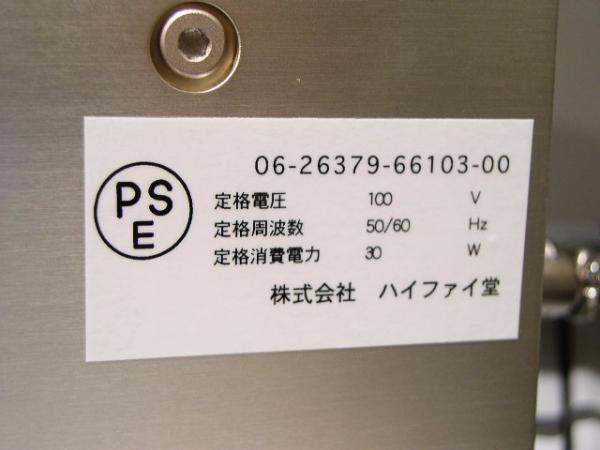 Readdressing an age-old question: how does a visibly non-Japanese person deal with living in Japan?
Readdressing an age-old question: how does a visibly non-Japanese person deal with living in Japan?
Everyone in my office is bilingual to some extent, but the lingua franca is Japanese. When the three foreign employees use English in the office, people almost seem surprised at how good we are at it. Or, in the words of my boss, they seem to be thinking: “Wow, he isn’t a retard after all!”
But every day I have to go outside, into the Real Japan, where speaking English to a foreigner is a much more natural feeling. Hell, it’s practically a legal presumption now. I can tell you from personal experience that bureaucrats definitely treat you better when you speak to them in English. Even in our office, our Japanese clients are put at ease when they can practice their English on a foreign lawyer, but have the option to switch back into Japanese if the conversation starts getting difficult.
I occasionally poke around on mixi when I’m bored, and sometimes I enjoy slipping into the discussions in a group called 英語★できる人&勉強してる人 (“ENGLISH – People who know it and people who study it”). A high school-aged girl in Yokohama made a post a few weeks back along these lines:
I’m working part-time at a convenience store now, and I get quite a few foreign customers. I don’t know much English, but I’m wondering what I should say to them in English. Any ideas?
There were a bunch of replies, with varying degrees of appropriateness. I decided to slip in the Debito answer to this question at the bottom of the thread:
These are all good ideas. One thing you should watch out for, though, is that many foreign people in Japan want to speak Japanese. So if you see someone and immediately think “Oh, I’m going to speak English to them!” they might not appreciate it. Of course everyone has a different attitude, but there are such people out there.
Now I disagree with that suggestion. I remember poking through a book that advised people learning Japanese to “say you don’t speak English.” That’s an effective response, but it always struck me as extreme. Do I really have to lie to speak in Japanese with people on the street?
The Debito answer isn’t the right answer. The better example comes from Anthony Bianchi, the Brooklyn-born city councilman in Aichi Prefecture who we started talking about a few days ago. He likes who he is. As a result, people like who he is. He doesn’t need to file lawsuits to get his way: he can get himself elected.
In the Campbell hero archetype, this is called being the Master of Two Worlds. This is what you get when you blow up the Death Star, ride your horse into the sunset or accept surrender papers on a battleship in Tokyo Bay.
Now, I started writing this post as a bitchfest after a trip to Wendy’s came out like this:
ME: Bacon burger set.
EMPLOYEE [apparently a trainee]: Uh…. fo-a hee-uh o-a to go-o?
ME: [getting impatient] For here.
EMPLOYEE: [motions vaguely toward the set options part of the menu]
ME: Fries. Pepsi.
EMPLOYEE: S, M, L?
ME: (sigh) I want the small size, please.
The employee proceeded to ring up a small fries and small drink, but no burger. I didn’t want to make the situation any more difficult for him, so I paid my 200 yen, ate and left.
But in the end, there’s a comfort zone in Japan. It’s not enough to be Japanese or American… you have to be able to be both at once. And that’s something I’ll have to work on a bit. Maybe that kid just wanted to speak English; maybe he isn’t a retard after all.

 He explains that the keys to his huge success were: a) His years of teaching produced a large contingent of people of voting age who knew him from being his student; and b) Dissenting voters appreciated his promises to bring a more open style of politics to the city. In
He explains that the keys to his huge success were: a) His years of teaching produced a large contingent of people of voting age who knew him from being his student; and b) Dissenting voters appreciated his promises to bring a more open style of politics to the city. In  Bianchi’s political style stands in stark juxtaposition with that of a better-known Western-born activist in Japan,
Bianchi’s political style stands in stark juxtaposition with that of a better-known Western-born activist in Japan, 

 With the Japanese people in an uproar over leaks of personal information, often to unscrupulous scam artists, it should come as nothing less than a slap in the face that the government is publishing their fellow citizens’ home addresses. I’m just a curious nerd, but what’s to stop some right wing group from harassing new citizens for tainting Japan’s supposedly sacred and pure bloodline? (Of course, they’d have to go looking for it at a relatively obscure and boring government website, but gosh darnit, it’s just like that
With the Japanese people in an uproar over leaks of personal information, often to unscrupulous scam artists, it should come as nothing less than a slap in the face that the government is publishing their fellow citizens’ home addresses. I’m just a curious nerd, but what’s to stop some right wing group from harassing new citizens for tainting Japan’s supposedly sacred and pure bloodline? (Of course, they’d have to go looking for it at a relatively obscure and boring government website, but gosh darnit, it’s just like that 